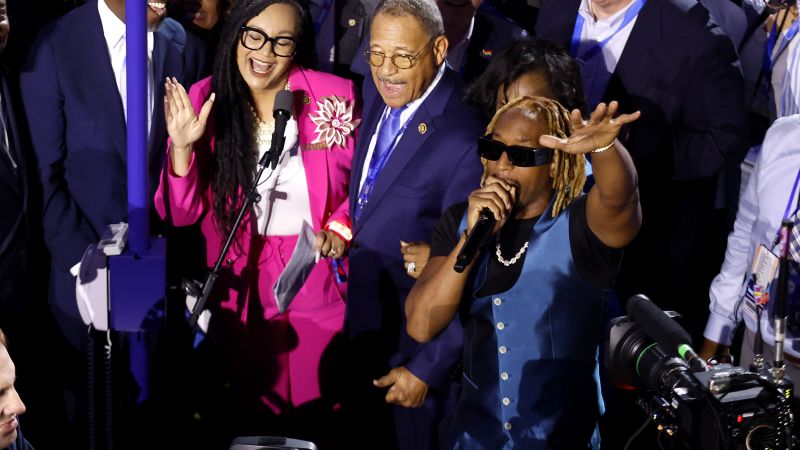In the wake of Kamala Harris entering the 2024 presidential race, there has been a surge of enthusiasm and support from the Democratic side, which has been referred to as “Kamalamania” or “Kamalmentum.” Beyond the typical analysis of her candidacy, Harris is also tapping into the “Black Joy” movement, which emphasizes celebrating Black humanity outside of trauma and oppression. Led by Black artists, authors, and activists, this movement embodies a joy that cannot be stolen by anyone else.
Black Joy is a sentiment that is difficult to define but easy to observe and experience. It includes occasions like the Black Joy Parade, Juneteenth celebrations, and exuberant Black family gatherings with the sounds of Earth, Wind & Fire in the background. Harris has been embodying this Black Joy during the Democratic National Convention through her laughter and engagement with supporters, stirring up hope and enthusiasm among Black Americans who have not felt this optimistic since Barack Obama’s 2008 campaign.
Despite the volatile nature of presidential campaigns, Harris has integrated the principles of Black Joy into her political strategy, embracing her laughter as a form of empowerment and defiance against historical racist stereotypes. By exuding a sense of freedom in her expression and identity, Harris challenges conventional expectations and perceptions of Blackness, particularly in the realm of politics. Her unapologetic demeanor in the face of attacks on her racial background exemplifies a form of resilient Black Joy that refuses to be defined or limited by others.
Harris’ unwavering assertion of her racial identity and refusal to engage with attempts to undermine it reflect a broader shift in how biracial individuals navigate their sense of belonging. Her background, which includes both Black and South Asian heritage, underscores the complex and diverse nature of American identity. Harris’ ability to shrug off attempts to label or diminish her Blackness embodies a form of Black Joy that rejects external validation and instead embraces personal pride and authenticity.
As the presidential race progresses, the question arises of how far Black Joy can sustain Harris’ campaign. While setbacks are inevitable, recent polling data indicates strong support for Harris among Black voters, which may be fueled by a desire to avoid a return to the racial tensions and hardships experienced under the Trump administration. Harris’ potential to mobilize and energize the Black electorate, similar to Obama’s success in previous elections, offers hope for a transformative shift in both Democratic fortunes and the mood within Black America, providing a sense of hope and empowerment for a community that has faced numerous challenges in recent years.
In a political landscape where Black voters are increasingly influential, Harris’ embrace of Black Joy may serve as her most significant political asset, particularly in key swing states like Georgia and Pennsylvania. By harnessing the power of joy, resilience, and pride in her campaign, Harris has the opportunity to not only make history as the first female president but also to uplift and inspire a community that has faced profound struggles and injustices. The fusion of political aspiration with a celebration of Black identity and joy may prove to be a winning combination in the upcoming election.


